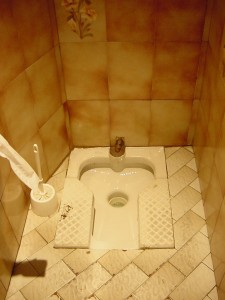“Don’t put on any airs when you’re down on Rue Morgue avenue.” – Dylan, Just Like Tom Thumb’s Blues
There is value in getting lost. It teaches you something, as they say, though I’ll admit I’m not exactly sure what.
The most lost I ever was in my life was one night in Orléans, France. I think I was probably twenty-three. It was one the first times I’d ever traveled on my own in Europe. I’d only been in France for a day or two, days spent wandering, disoriented, through the streets of Paris. It’s one thing to look at a map and see how Parisian streets spiral away from eighteen separate centers and another to try to navigate this array on foot. You don’t always realize how long it is from one point to another, even if you have a map in your hand. It certainly wasn’t something that my brain could handle.
But I was never technically “lost” in Paris. I might, in fact, be wandering aimlessly, but I was not, strictly speaking, lost. I could find myself on a map and I could find my way back to my hotel, eventually, knowing that it might be a lot further than I thought, and that I might get confused and go the wrong way for long enough to make it and even longer walk, but I could figure it out eventually, and the exercise wasn’t the worst thing that could happen to me body. Besides, I got to see a lot of Paris.
Which is to say, how lost I got in Paris was nothing compared to how lost I got in Orléans. My utter disorientation started, I suppose, when I first encountered a bathroom consisting of a combination toilet and shower.


I really needed to use all its “full functionality,” so to speak, but I couldn’t quite believe that I correctly understood the situation. Perhaps this wasn’t at all intended as an all-in-one solution and I would be making some horrible, humiliatingly embarrassing, “international incident,” mistake.
After my encounter with the toilet, I’d had dinner on a square somewhere near my hotel and started to go back as it was getting dark. As I walked on the square, I realized I was wrong about exactly where my hotel was. In the plaza nearby, there was a sign showing the streets around the square, but none of their names rang any sort of bell for me. I knew I’d recognize my hotel if I saw it. Or perhaps I should say that I would certainly recognize it in the daytime, but wasn’t at all sure I’d recognize it at night if I were walking right by it. I’d also forgotten a piece of information even more crucial than the street name: I couldn’t remember the name of the hotel!
I began to walk around, gradually realizing that I was in trouble. How could I even ask anyone for help? What would I say? Even if I could communicate it in French and hope I understood the answer, what on earth could I ask? I’m looking for my hotel? OK. “Quel hotel?” What would I say?
So I walked and walked. I despaired. It was an impossible situation. I could not walk all night through streets of Orléans and I could not find my hotel. I clearly had walked further and further from where I’d started and was getting more and more exhausted. No one had done anything bad to me, but the streets were foreign in a harsh, not quaint, way. I felt alone and scared. I walked.
Eventually I came to the train station, on the edge of town. In the train station was a phone booth with a reasonably intact phone book. In the phone book I recognized the name of my hotel. It was over. I would find my way there.
But that night has stayed with me: Not as a warning, but something else. It’s a bit like what happens after a nightmare. When we awaken we’ve seen a dark side that makes the light of day seem somehow brighter, but also something lingers. Perhaps it’s a sense that there’s more to the world than our waking minds can easily accept.
